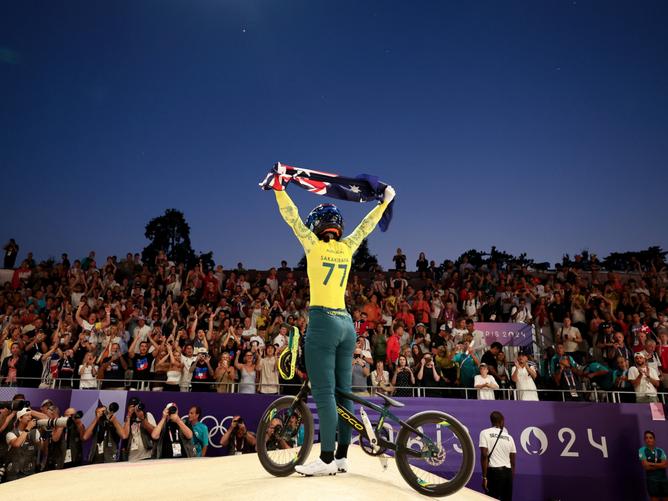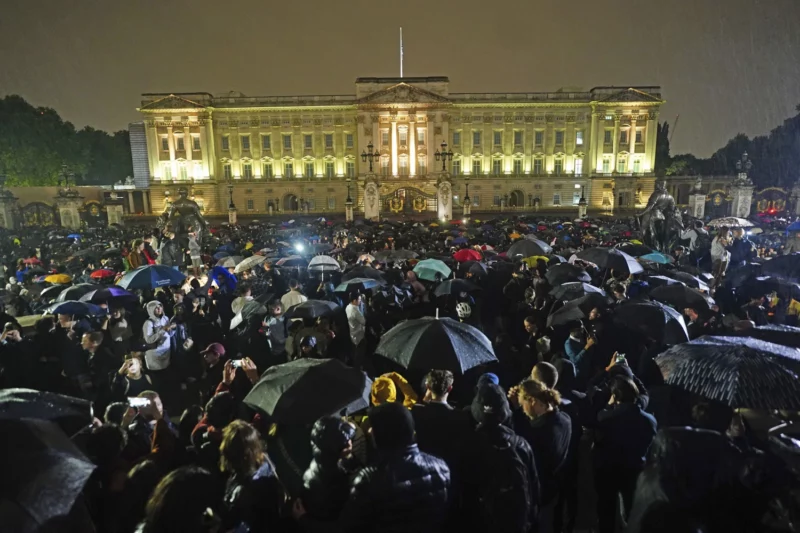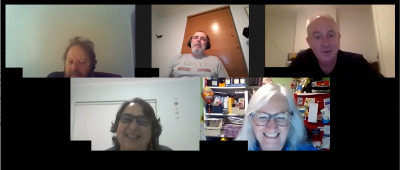Australia’s sacrifice towards GOLD
‘OUR’ most successful Olympics in HISTORY!
“We are one, but we are many.
And from all the lands on earth we come.
We’ll share a dream and sing with one voice.
WE are f…ing AMAZING! Aussie, Aussie Aussie!
Australia sits in 3rd position on the medal tally, with 18 GOLD and 45 medals. I loved the below video of Australian Olympic BMX Champ Saya Sakakibara winning GOLD.
“All I had to do was just f…ing go and I f…ing went for it”
The Olympics are so great, particularly when WE are winning.
A perfect day for a(nother) public holiday. WE deserve it.
Let’s start thinking like an Olympian …
“I just envisioned this moment. I just visualised being at the top of the start and on the podium, hearing the national anthem and having the gold medal around my neck.” Saya Sakakibara
Then put in the work, and sacrifice. Keep a sharp vision for the future.
Setting a vision for the future starts today.
Perhaps the Olympics success and sacrifice of 2020-2024 will germinate an optimistic narrative for Australia. Just like the post World War II Baby Boom 1945 to 1975 that created an economic boom from despair, and transformation of music, media and pop-culture.
It will be interesting to observe the impact of Australia’s BEST EVER Olympics on consumer and business confidence. Just like negative media and other coverage can create a level of despair / slowdown, positive sentiment can create optimism and confidence to grow.
In the face of the Olympics, it is interesting to benchmark ourselves against other countries. Australia wins GOLD for the largest average house size globally, compared with the US in Silver with 201sqm. Australia wins GOLD for gambling losses per capita, followed by Singapore and Ireland. Australia gets silver for obesity, US Gold.
“The 2023 World Obesity Atlas projects that by 2035, 47% of all Australian adults will be living with obesity, representing a 2.2% annual increase in obesity rates between 2020 and 2035. Among children the projected increase is 2.6% annually. It is estimated that this will increase the economic impact of obesity to be equivalent to 2.5% of GDP by 2035.“
I heard a statistic this morning, that in the 1950s an estimated 50% of homes in Australia were built by the homeowners themselves. Today, the percentage of DIY-built homes in Australia has decreased drastically to less than 5%. In the 1950’s the average size home in Australia was around 100 square metres. Today it is around 230 square metres. Our expectations are ever evolving and recalibrating. Times were tough in the 1950’s.
The post World War I I era saw significant global economic growth, with the US GDP rising from $228 billion in 1945 to nearly $1.7 trillion by 1975. This led to the Baby Boomer generation, marked by higher birth rates and changes in music, media, and consumerism. Marketers targeted this generation, promoting rock and roll, television, and popular culture that emphasized entertainment, faith, patriotism, and conformity. World War II transformed global economies, culture, and innovation.
Now, in 2024, The household saving to income ratio decreased to a record 0.9% in the March 2024 quarter. Household credit (i.e. loans to acquire, maintain renovate or improve a residential property) is also at record levels ($2,283 Billion June 2024).
The economy is tough in 2024.
In terms of business medals,Switzerland, Sweden and the USA get GOLD, SILVER and BRONZE for Innovation. Australia ranks 23rd. While 46% of businesses are innovation-active, barriers like funding and skill shortages exist (Australian Bureau of Statistics). The ABS highlights that market research is a crucial tool for businesses, aiding in overcoming barriers to innovation.
Japan, Switzerland and South Korea get GOLD, SILVER and BRONZ for Economic Complexity Australia ranks lower (93rd) due to its reliance on natural resource exports rather than complex, value added products.
The sacrifice of challenging times, much like many are experiencing in 2024, will be the worse of times for some, and best of times for others harassing the opportunities of a pessimistic market
“Rather than embracing the opportunities of a pessimistic market, businesses tend to act when media, business and government are consistently optimistic… when all are riding the wave, competing in the same markets and when costs and conditions are likely inflated and preparing to decline.” Thriving in uncertainty
Take some advice from Malcolm Gladwell on the value of practice (stop being lazy) ..
“The difference between ordinary and extraordinary is practice.” Vladimir Horowitz
In Malcolm Gladwell’s book ‘Outliers’ he argues that elite performers have upward of 10,000 hours of practice.
“Research has shown this to be true in field after field. It generally takes about ten years of intense study to become a chess grandmaster. Authors and poets have usually been writing for more than a decade before they produce their best work, and it is generally a decade or more between a scientist’s first publication and his or her most important publication.”
You will likely never reach the Olympics or even close, but progress comes from disciplined practice towards a goal.
Similarly, businesses can be lazy and complacent. Failing to change with the times. Hoping everything will be OK. Winning ‘gold’ comes with utilising all the data that they have available to measure their performance and potential. Doing the robust research to identify growth and innovation priorities, rather than hoping everything will be OK, before it is too late.
Setting a vision for the future, and doing everything it may take to get there.
https://www.newyorker.com/sports/sporting-scene/complexity-and-the-ten-thousand-hour-rule




